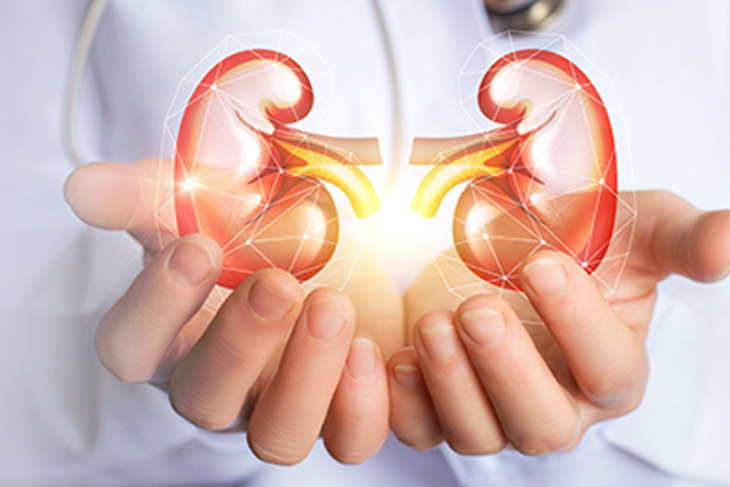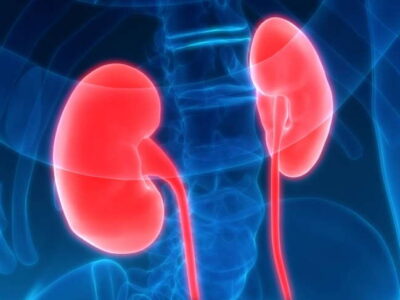WHAT IS A KIDNEY TRANSPLANT?
Renal or a kidney transplant is the surgery performed to replace a diseased kidney with a healthy one from a donor. The replaced kidney can either be taken from a family member who may be a good match or from someone who is deceased. The transplant procedure is mostly performed when a patient is suffering from an end-stage renal disease where the kidney loses its ability to function to 90%. IThe common causes that lead to this condition are:
- Uncontrolled / High Blood Pressure
- Diabetes
- Polycystic Kidney Disease
- Analgesic Abuse
- Glomerulonephritis
- idiopathic
Expert renal transplant surgeons mostly perform three kinds of kidney transplants.
Deceased Donor Kidney Transplant
When the donated kidneys are from a deceased donor, the kind of transplant performed is known as a deceased transplant.
Living Donor Kidney Transplant
When a living human being donates a kidney, the kind of transplant performed is known as a living transplant.
Pre-emptive Kidney Transplant
In some cases, a patient may need/benefit from receiving a kidney transplant before they are put on dialysis. This process is known as a pre-emptive kidney transplant.
WHY IS A KIDNEY TRANSPLANT PERFORMED?
Often the treatment of choice for kidney failure against dialysis, a kidney transplant is the way to treat chronic kidney diseases and help you live a longer and healthier life. The process of renal transplant is associated with:
- Treating Kidney Failure
- Improving Quality of Life
- No More Need For Dialysis
- Increased Life Expectancy
- Fewer Dietary Restrictions
- Lower Treatment Costs
On the other hand, a few times it may be safer for the patient to go through the process of dialysis than the transplant. This can be considered by a medical expert if the patient undergoes any of the following.
- Advanced Age
- Severe Heart Disease
- Active or Recently Treated Cancer
- Dementia
- Alcohol/Substance Abuse
EVALUATION OF DONOR AND RECIPIENT
The first-degree relative donors (parents, siblings, and children) or spouse has to be a healthy adult of either gender, between 20 and 60 years of age.
Initially, a psychological evaluation is done by a Medical Social Worker and Transplant Coordinator to access the mental status and readiness to undergo Kidney Transplantation.
All the relevant investigations are done in a step-wise manner according to our protocol.
Recipients are seen by various specialities to determine whether all the other organ systems are normal.
Evaluation of donors is done by Nephrology, Urology, Anaesthesiology, Vascular Surgery, Cardiology, Gynaecology (for female donors) and other relevant specialities.
Gujarat Superspeciality Hospital has well-equipped and modern operation theatres where experienced and qualified Anesthesiology, Urology and Vascular surgery teams work together to provide a safe surgical procedure for patients. The surgical teams perform laparoscopic donor nephrectomy (removal of the kidney using a laparoscope). This procedure reduces the length of the operative scar and pain associated with surgery; this allows the kidney donor to get discharged early and resume his/her activities.
After surgery, the patients are managed in a dedicated Intensive Care Unit, where patients are looked after by a team of trained Nurses, Nephrologists and Transplant Surgeons. A well-planned protocol-based post-operative care helps in prompt recovery after the surgery. Transplant recipients are followed up on a regular basis by the transplant team.
WHAT TO EXPECT AT A KIDNEY TRANSPLANT PROCEDURE?
Before the Procedure
The donor and the recipient have to undergo certain investigations prior to the renal transplant surgery for creating a match for the kidney. The donor is evaluated for fitness and whether it is safe for him/her to donate the kidney. With certain legal formalities, consent forms and approval from the committee of renal transplant, the surgery is performed and the better of the two kidneys are left for the donor.
During the Procedure
The donor’s kidney is removed through laparoscopy usually involving 3-4 small incisions and a small lower abdominal cut. The donor is discharged from the hospital after about 4-7 days of the surgery.
Performed with general anaesthesia, the patient during a kidney transplant is not awake during the procedure. The surgical team continuously keeps track and monitors the heart rate, blood pressure and blood oxygen level of the patient throughout the procedure.
The Surgery:
- An incision in the lower part of one side of the abdomen is made the new kidney is put into the body.
- The blood vessels of the new kidney are attached to the lower part of the abdomen, just above one of your legs.
- The new kidney’s ureter is then connected to the bladder.
After the Procedure
After the kidney transplant surgery, the patient usually creates a lot of urine. Beginning from half to one litre per hour to 2 to 3 litres per day till after 5-7 days of surgery. The patient’s creatinine levels improve to become normal during this period. With a lot of immunosuppressant drugs given and monitored continuously as per their level in the blood, the patient needs to visit the hospital for check-ups on a regular basis even after discharge.
WHAT ARE THE RISKS AND COMPLICATIONS AFTER A KIDNEY TRANSPLANT?
The process of renal transplant can successfully treat a lot of kidney diseases and kidney failures but sometimes it does not completely cure them. A few times, some forms of diseases may return even after a transplant.
Some health risks associated with renal transplant include the side-effect of taking the anti-rejection medications that are given to the patient to prevent the body from rejecting the donated organ. The patient should have a detailed conversation with his/her doctor, family members and the donor before taking any final decision.
This process carries significant complications with it like:
- Blood Clotting and Bleeding
- Urine Leakage from the Bladder
- Chances of Infection
- Failure or Rejection of the Donated Kidney
- Heart Attack/Stroke
WHAT IS DONE TO PREVENT REJECTION?
After a kidney is transplanted into the patient’s body, it needs to be supported through various medications that allow it to survive. The doses of these medications keep changing depending upon the response of the patient’s body. Since these medicines may cause infection in your body, a balance should be maintained between preventing rejection and creating the body susceptible to infection.
CARE AFTER A KIDNEY TRANSPLANT
After a successful kidney transplant, it is extremely important to take good care of your body in a lot of ways to help your body successfully accept the foreign organ. You may need to adjust your diet with a few added restrictions. A few medications may create a rise in your appetite and therefore make it very easy for you to gain some extra weight. Maintaining a healthy weight through diet and regular physical exercise helps reduce the risk of heart disease, high blood pressure and diabetes. Yoga and regular movement help boost energy levels in your body leading to an increase in strength.
GETTING A KIDNEY TRANSPLANT AT GSH
The Department of Urology at Gujarat Superspeciality Hospital has an integrated team of expert doctors led by Dr. Pragnesh Bharpoda, a kidney specialist in Vadodara, and specially trained nephrologists that deal in renal transplant surgery, infectious disease management and other specialities focused on the needs of the patient.


